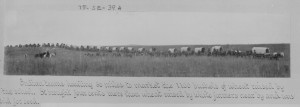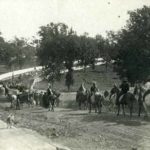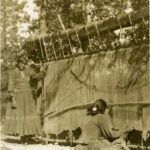Policy makers in the U.S. government thought that tribal ownership of land was inefficient and kept Indians from assimilating into American culture. In 1887, Congressman Henry Dawes of Massachusetts sponsored the General Allotment Act (The Dawes Severalty Act).
Each head of a family would get 160 acres of land (or 320 acres of grazing land) and the surplus reservation land would be sold. (The Supreme Court had decided that the US government held title to Indian land and Indians enjoyed only a right of occupancy). The allotted land would be worked by Indian families, creating responsible farmers and ranchers who were self-sufficient and no longer dependent on government assistance.
The allotted land could not be sold for 25 years, and after that period, the Indian participants would become American citizens. Like much legislation of the period, it did not work out well for Indians, who were usually relegated to unprofitable land that couldn’t sustain them. They fell into poverty, sold or were cheated out of their land, and never became the prosperous small farmers that Congress had envisioned.
From 1887 to 1934, 90 million acres of Indian reservation land were transferred to non-Indian ownership and control.
________________________________________________________








